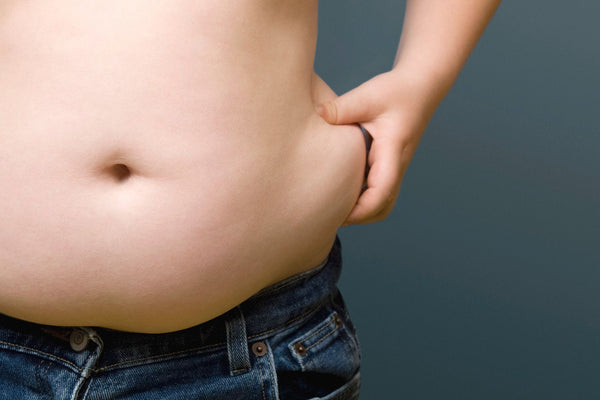New Year, New You: Sample Diet for a Healthy Heart

Taking care of your heart is paramount to your health.
Heart disease is the leading cause of death among both men and women in the United States. According to the Centers for Disease Control and Prevention (CDC), approximately 610,000 people die of heart disease each year, equalling 1 in every 4 deaths.
People with heart disease are at a higher risk of heart attack, stroke, heart failure, aneurysm, peripheral artery disease, and sudden cardiac arrest.
Avoiding these health problems and maintaining good heart health starts with a healthy diet. Here, experts offer advice on the types of food that should be included in your diet to protect your heart.
Fiber Is Essential for a Heart-Healthy Breakfast
Breakfast wasn’t dubbed the most important meal of the day for nothing. Fuel up on foods high in fiber and low in unhealthy sugars and saturated fats in the mornings to start your day with a healthy kick.
Fruits, vegetables, whole grains, and dairy all make great choices for breakfast.
Oats, either steel-cut or old-fashioned, are also a smart option. They are 100 percent whole grain and a good source of soluble fiber, which means they are not only good for you but they will keep you feeling full until lunch.
Additionally, oats may help to lower blood cholesterol levels which, in turn, can decrease risk of heart disease.
Steer clear of breakfast foods high in saturated fat and refined grains, including bacon, sausage, waffles, pancakes, and sugary cereals. These can all increase bad cholesterol and triglyceride levels, which are bad for heart health.
And while eggs have been a somewhat controversial food when it comes to heart health because they’re high in dietary cholesterol, she points to recent research that shows a moderate amount of dietary cholesterol does not increase blood cholesterol levels for most people.
The study, published in February 2016 in the American Journal of Clinical Nutrition, found that eating one egg per day, including the yolk, was not associated with any increased risk of heart disease.
It's a safe number to stick to unless otherwise advised by a doctor. It's just an average, though. If you have three eggs for breakfast twice a week, that works, too.
As with other foods, cooking with a little bit of healthy fat, such as olive oil — or none at all, as with poached or boiled eggs — is preferable.
Beware - When you fry eggs in a ton of butter it adds all of that unhealthy saturated fat, which makes it bad for heart health.
Fill Up on Heart-Healthy Fruits and Veggies for Lunch
For lunch, a salad, sandwich, or hearty soup are usually healthy options, but there are some general rules to keep in mind.
Salads are thought of as a classic health food, but not all salads are created equal. Some salads can be 1,000 calories or more.
To keep your salad heart-healthy, she suggests using a variety of greens and fresh veggies to keep it interesting. Avoid toppings like cheese, bacon, and croutons, which can add a lot of fat and sodium to your salad.
Instead of croutons or bacon for crunch, consider adding a small amount of nuts, like walnuts, almonds, or pecans, or try seeds, like sesame, pumpkin, or flax seeds. These will still add fat, but less saturated fats and more healthier fats.
For dressing, opt for vinaigrettes and keep the portion to no more than two tablespoons.
When it comes to making a sandwich, start with whole grain bread, and choose a lean meat. Be careful of deli meats they can be very high in sodium. Add a low-fat cheese, such as Swiss, which is also naturally low in sodium.
Tomato, lettuce, or cucumber can add some texture to a sandwich, but avoid pickles and large amounts of condiments as they can add extra sodium.
Instead, try a small amount of avocado or olive oil–based mayonnaise.
Soups can sometimes get a bad reputation because they can be high in sodium and unhealthy fats. But choosing a low-sodium, broth-based soup is a great option for a meal, Kennedy says.
She suggests opting for soups loaded with veggies, which can fill you up on relatively few calories. Choosing a healthy soup can also contribute to weight loss, help you maintain a healthy weight, and help bring down blood pressure, cholesterol, and triglycerides.
Supplement Your Greens With a Lean Protein for Dinner
For dinner, aim to fill up half your plate with fruits and vegetables.
If you’re including meat in your meal, choose those that are lean, like skinless chicken or turkey breast. If you’re buying ground meat, Fuller suggest getting meat labeled either 93 or 97 percent lean on the package. Keep portions to about 3 ounces, or the size of a deck of cards.
Fish can be a key part of a heart-healthy diet, as well as a good source of protein and heart-healthy fats called omega-3s.
According to the American Heart Association, “research has shown that omega-3 fatty acids decrease the risk of arrhythmias (abnormal heartbeats), which can lead to sudden death.
Fuller notes fish oil with the omega-3 content, also have anti-inflammatory properties that can help reduce inflammation of the vascular walls.
She recommends trying to incorporate fish into your diet twice a week. Start by switching out one red meat meal a week for a fish options, like salmon, tuna, mackerel or sardines.
As a general rule of thumb, it’s best to avoid fried foods and foods with heavy cream or cheese sauces. Instead opt for items that are grilled or baked.
Skip the Junk Food and Fuel Up on Heart-Healthy Snacks
While snacking is often associated with unhealthy foods, like chips or cookies, munching on healthy foods can help satiate hunger and control weight, which is essential for a healthy heart.
Snacks are a great opportunity to add in more heart-healthy fruits and vegetables,
Fuller recommends choosing foods with protein and fiber, two nutrients that will help keep you full until your next meal.
Some heart-healthy go-to snacks to keep on hand are:
- Fruits, like apples, oranges, or pears
- A handful of nuts, like almonds, cashews, or walnuts
- Fresh veggies and hummus
Snack foods to avoid include those that are processed, or those that contain refined grains, added sugar, or unhealthy saturated or trans fats, such as candy bars, chips, cookies, and baked goods.
Instead of thinking of a snack as a time to indulge, try to think of it as a time to get in another serving of a healthy food.
Health benefits, linked to drinking tea
Tea, especially green and oolong tea, like Cho-Yung Tea, is often said to be good for your health. Tea contains substances linked to a lower risk for heart disease, cancer, and diabetes. But keep tea's healthy boost in perspective, says the September 2014 Harvard Men's Health Watch.
"Tea consumption, especially green tea, may not be the magic bullet, but it can be incorporated in an overall healthy diet with whole grains, fish, fruits and vegetables, and less red and processed meat," says Qi Sun, assistant professor in the Department of Nutrition at the Harvard School of Public Health.
The main health-promoting substances in tea are polyphenols, in particular catechins and epicatechins. Lab and animal studies say these molecules have anti-inflammatory and antioxidant properties. Harvard-led studies of large groups of people over time have found that tea or coffee drinkers are at lower risk for diabetes and possibly cardiovascular disease. Coffee also contains polyphenols.
It fits in perfectly well with a heart-healthy lifestyle.
One important warning: A cup of tea contains only a couple calories. Processed, sugar-sweetened tea beverages are loaded with extra calories. "If there are any health benefits to green tea /oolong tea belnd consumption, it's probably completely offset by adding sugar," Sun says.
SOURCE: www.everydayhealth.com
Also in News

Gym Goers, Bodybuilders, Boxing Clubs and Athletics Love The Benefits Of “The Feel Good Drink”

How To Eat Less And Not Feel Hungry Or Your Money Back!

Sitting Is Really The New Smoking, and it's Killing You ! [infographic)
Ever feel like your 9-5 is killing you? Well, if you spend all that time sitting down, it just might be.
Indeed, numerous studies indicate that the health impacts of continuous sitting cannot be reduced through daily exercise. Even in physically active people, sitting increases their health risks. And this risk has been found to increase with every two hours of time spent sitting.
